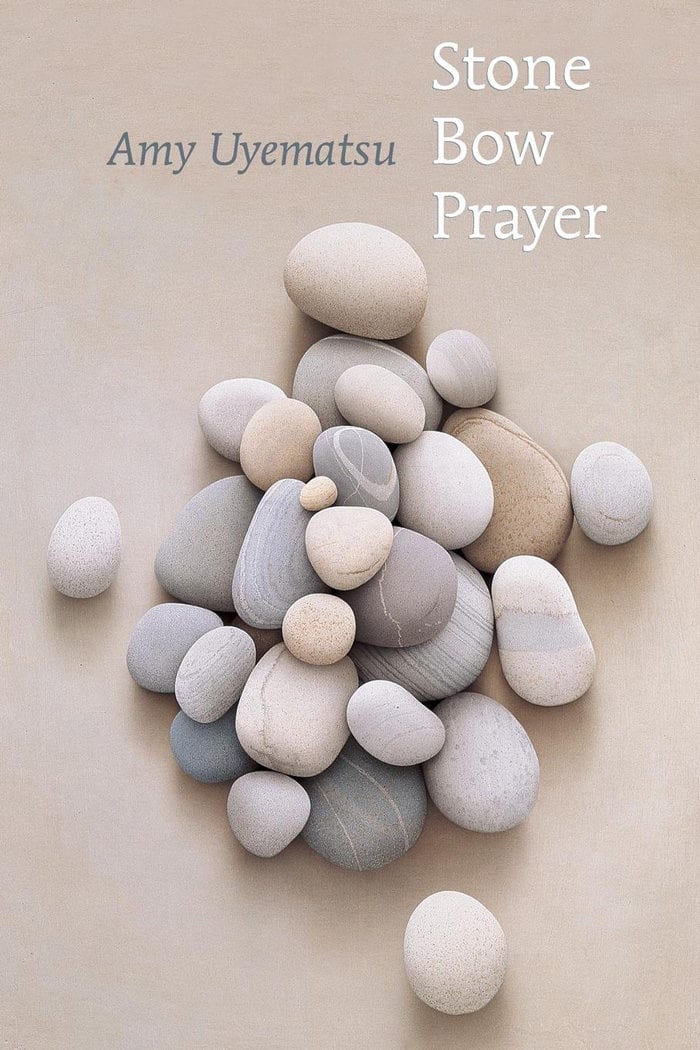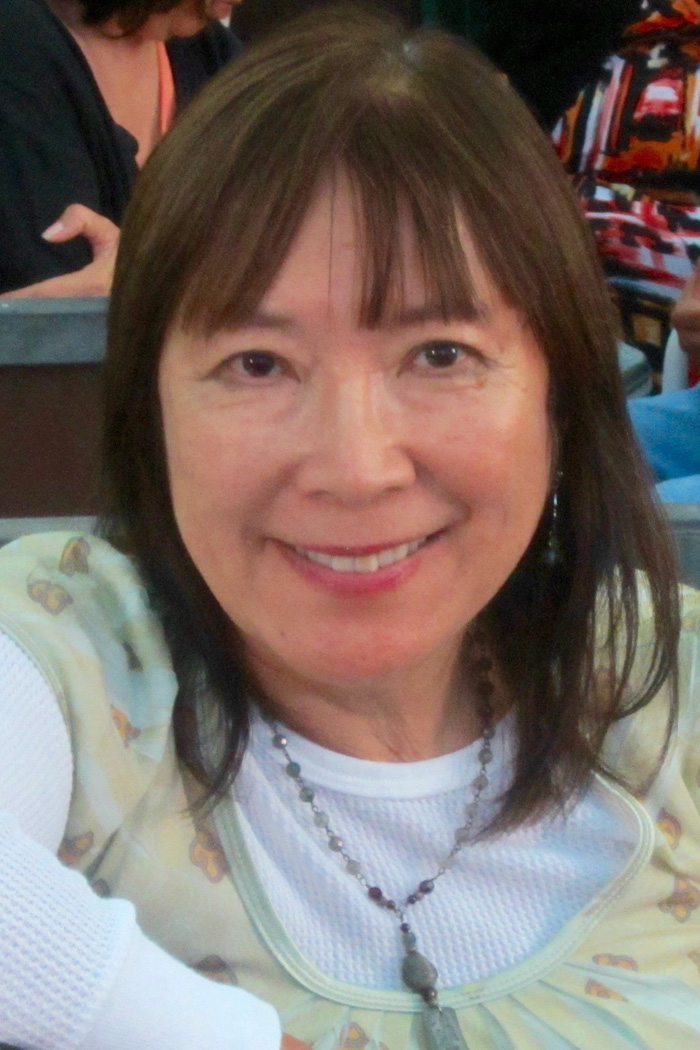
Constructed as a Japanese calendar, with bows to the Zen aesthetic, Stone Bow Prayer—Uyematsu’s third book of poems—shows a woman whose life engages politics, her ancestry and spirit, while making a living as a public school math teacher in Los Angeles.
Here the infinite and minute nurture one another, and “heaven needs us” as much as we yearn for the sacred. Along with words and numbers, Uyematsu reveres stones—stones that listen to “the rustle our feet make / even when we leave,” a stone that spirals into the center of a pond in ever-widening circles, the ancient heart of stone that brings us closer to this mystery we know as life. Spanning the grassy plains of China, the coasts of Japan, and the wisteria-lined streets of Southern California, Stone Bow Prayer expands one woman’s unorthodox vision into an exhilarating illumination of the whole.
ISBN: 9781556592218
Format: Paperback
Simple Division
My history echoes
from small diameters—
120,000 issei and nisei
divided among 7 states
equals 10 barbed-wire
desert prison camps.
Reviews
“Award-winning poet Uyematsu’s talent shines in her third book of poems, in which she touches on the feminine and natural cycles of life, her Japanese ancestry, lessons from teaching, and ascertaining the sacred in the ordinary… Her life clearly informs her work, as the unlikely elements of politics, mathematics, and poetry all come into play here harmoniously.” —Library Journal
“Amy Uyematsu is a visionary cartographer who maps the twisting path of history with clarifying insight… Her voice, whether humorous and pointed, tempered by pain, or joyously celebratory, is always arresting. It is not surprising that so many of her poems arise from stones: their talismanic weight lingers long after the pages are closed.” —Amerasia Journal
“Uyematsu’s style is rueful, easy, and clear. Language becomes a calm ribbon of water through which we see the speaker’s tenderness and pain. Stones, simple objects of nature, invoke love and the loss of love, and often serve as her muses. The maturity and wisdom in her lines gives us faith in the speaker’s honesty.” —Parnassus: Poetry in Review
